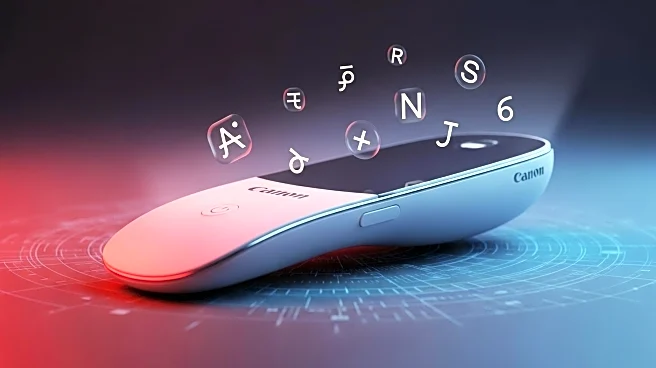What's Happening?
Pocketalk, a translation services company, has developed a two-way Haitian Creole model that translates the language in both text and voice. This initiative addresses the challenges faced by public agencies in the U.S. that need to serve residents speaking less-common languages. The development of this model required collaboration with Kerby Magophy, a Haitian Creole language expert, who contributed by recording his voice to teach the AI model pronunciation, grammar, and sentence structure. The process took over six months, emphasizing quality over speed. Pocketalk's original product is a handheld device providing real-time translation for numerous languages, and the company is expanding its reach beyond pocket-sized devices to other platforms.
Why It's Important?
The development of the Haitian Creole translation model is significant as it enhances communication for Haitian Creole speakers in the U.S., particularly in critical situations such as healthcare. This advancement in AI translation technology can bridge language gaps, fostering better relationships and understanding between diverse communities. It also highlights the importance of human expertise in developing accurate AI models, ensuring quality translation services. The initiative reflects a broader trend of integrating AI into language services, potentially reducing barriers and improving access to essential services for non-English speakers.
What's Next?
Pocketalk plans to continue expanding its language offerings, learning from the Haitian Creole model to develop translation services for other rare languages. The company is also adapting its software for use on various platforms, aiming to provide enterprise solutions that offer security and accountability. This expansion could lead to partnerships with other organizations seeking reliable translation services, further enhancing communication across different languages and cultures.
Beyond the Headlines
The collaboration between human experts and AI in language translation raises ethical considerations about the role of technology in potentially replacing human translators. However, it also presents opportunities to mend historical gaps and build stronger connections between communities. The initiative underscores the importance of understanding diverse cultures and languages, which can help reduce prejudice and racism, fostering a more inclusive society.










